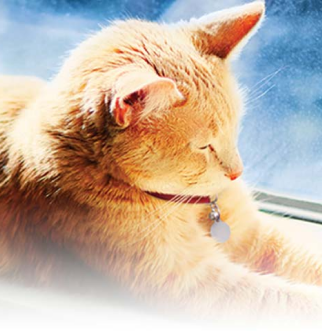

Congratulations on becoming the parent of a kitten! Now that your new pet is settling into your home, you may notice your cat vocalizing in a way that sounds like they're crying. Hearing baby kittens crying is a sad sound, indeed. Read on to learn why kitties cry and how to help a crying kitten.
Why Kittens Cry
Much like a human baby, your kitten communicates with you through vocal sounds. Your cat will continue this behavior throughout their life because it's an effective way to get your attention. A crying kitten is telling you they need something, pronto.
Generally, an otherwise healthy kitten cries because they want one or more of the following:
- Food
- Warmth
- Affection
- Playtime
- Stress alleviation
A bored kitty is a (potentially) mischievous kitty, so keep them occupied! Playing with your kitty every day and providing them with enrichment will keep your furry friend mentally and physically satisfied.
How to Soothe a Crying Kitten
Knowing your kitten's developmental and nutritional needs during their first months will help you identify why they're crying. Here are common reasons why kittens cry at different ages, and how you can help soothe your kitty.
Newborn to 8 Weeks
Newborn kittens are born deaf and blind. In their first weeks of life, it's normal to hear baby kittens crying or meowing because they need food and warmth, says the ASPCA. Kittens usually stay with their mothers until the age of 8 weeks so that they can nurse and stay cozy. The weaning process will typically start at around 4 weeks and usually lasts 4-6 weeks. When you first start weaning, the kitten might cry because their mother is not around to help with feeding. If you have a kitten younger than 8 weeks and mama cat isn't there to help, you'll need to step in.
How to help: Don't feed cow's milk to a kitten, emphasizes Best Friends Animal Society. Instead, bottle-feed them a formula made specifically for kittens. Best Friends also advises that when you're not feeding them, kittens up to the age of 4 weeks should stay in a cat carrier or other safe container with plenty of blankets or towels to keep them warm. Providing them with a heating pad specifically for kittens is another option.
8 Weeks to 6 Months
A kitten's baby teeth will erupt around 4-6 weeks, but will start to be replaced by their adult teeth around the 4-6 month mark. Teething isn't necessarily painful, says Greencross Vets, but it can cause irritability and sensitivity, which could lead your kitten to cry. If the crying is accompanied by red, swollen gums with discharge, contact your veterinarian right away — your kitty may need treatment.
How to help: Give your kitty something to chew on. Great options include plastic cat-safe chew toys and wet washcloths. You can also use the washcloth to gently wipe your kitty's teeth. This has the added benefit of getting your cat used to you poking around their mouth, which will make it easier to brush their teeth later on.
6 Months to Adulthood
As your kitten approaches adolescence and adulthood, they'll start to settle down and chill out. As your cat is reaching their adult size, it is important to reassess their litter box. If you notice your kitty crying before, during or after using the litter box, it is important to have them examined by your veterinarian. Vocalizing in the litter box could be the result of painful urination or defecation.
How to help: The first step when it comes to a cat or kitten crying or showing signs of distress at the litter box is to have your pet evaluated by a veterinarian. However, creating a safe, clean and comfortable place for your cat to use the bathroom is recommended for all cats, even those not having any problems. Consider whether the litter box is big enough for your cat and whether they like the litter. It is generally recommended to have a litter box 1.5x the length of your cat and it needs to be easy to get into. Be sure to scoop daily and keep the area clean and tidy.

Life extension for kittens? It’s called good nutrition.
A long life starts with good nutrition. And good nutrition starts with a healthy diet. Like our science-led Tender Chicken Dinner for kittens. It's made with purposeful ingredients for a flavorful, nutritious meal. Including high-quality protein for building lean muscles. And the taste? Kittens love it!
Life extension for kittens? It’s called good nutrition.
A long life starts with good nutrition. And good nutrition starts with a healthy diet. Like our science-led Tender Chicken Dinner for kittens. It's made with purposeful ingredients for a flavorful, nutritious meal. Including high-quality protein for building lean muscles. And the taste? Kittens love it!
When to Call the Vet
If your kitten's crying doesn't abate or if you notice additional signs of distress, such as diarrhea, vomiting, lethargy, decreased appetite or excessive grooming, speak with your vet or an on-call emergency vet.
Your kitty's meows and cries will change as they grow into a rambunctious young adult and beyond. Keep those lines of communication open by listening, responding and showing them lots of love.



















